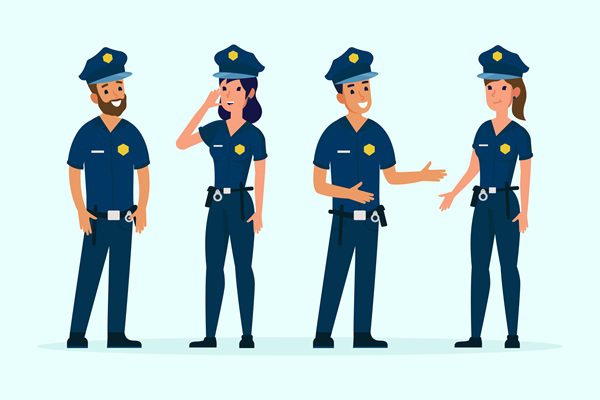
Knowing what to expect during an encounter with the police can help protect your rights. A Toronto criminal defence lawyer can lead you through these circumstances. Here are 10 common police tactics defined in clear language with tips on how to stay informed.
Your knowledge of these can be life-changing in areas like youth criminal justice roles, extradition lawyer in Canada, or gang criminal offences in Canada.
1. Asking Questions Without a Reason
Police can question you to get information, even if you are not suspected of a crime. They may appear friendly, but they aim to gather information. Ask at all times whether you are free to go. If you are a suspect, a Toronto criminal defence consultant can counsel you on what you should or shouldn’t say.
2. Searching Without Permission
By law, police are required to get a warrant or permission to search your belongings or body. They could “want to take a look,” in a casual sense. Instead, politely decline, unless they can produce a warrant. This has implications in cases such as gang criminal offences in Canada, where searches are frequent.
3. Making You Feel Guilty
They want to hear these words: “I did it.” Officers might respond: “Just give in and say you did it; it will be better.” This is a ploy to make you talk. Keep calm and request a Toronto criminal defence specialist to speak on your behalf.
This is particularly important for youth criminal justice positions: for example, young people may feel scared.
4. Using Silence
Police might keep quiet after asking you a question, hoping you’ll say something to break the silence. Please don’t fall for it. You do not have to say anything. Talk to an extradition attorney in Canada if the matter is international.
5. Good Cop, Bad Cop
One officer may be kind, the other tough. They want you to trust the “good” cop so they can share information. Don’t trust this act. A Toronto criminal defence specialist can address traps such as these.
6. Threatening Arrest
Police might tell you they are going to arrest you, in an attempt to scare you into talking. That may be a bluff, unless they have evidence. Ask if you’re under arrest. If not, you can leave. This is a common re-offender strategy in Canada’s gang-related criminal offences.
7. Lying About Evidence
Police can lie about having evidence, such as claiming they found your fingerprints. Please don’t believe them without proof. Shut up and get a Toronto criminal defence specialist to deal with this.
8. Watching Your Behavior
The police watch how you behave, nervous, calm, angry, to determine your guilt. If you’re angry, resist the impulse to snap. This is particularly important in a youth criminal justice capacity, in which behavior can repeatedly shape outcomes.
9. Asking for DNA or Fingerprints
They may request your DNA or fingerprints “to rule you out.” Don’t consent without consulting a lawyer. A lawyer in Canada can assist in a case that crosses borders.
10. Promising Leniency
The police may tell you they’ll “use their influence” if you confess. They are not capable of doing deals, only prosecutors can. Don’t trust promises. Retain a Toronto criminal defence professional to discuss a possible settlement on your behalf.
Final Words
Knowing these strategies will help you keep it together. If you are the subject of gang criminal offences in Canada, require an extradition lawyer in Canada, or serve youth criminal justice functions, then a criminal defence lawyer in Toronto can provide the protection you need. Keep your cool, know your rights, and ask for legal help when necessary.